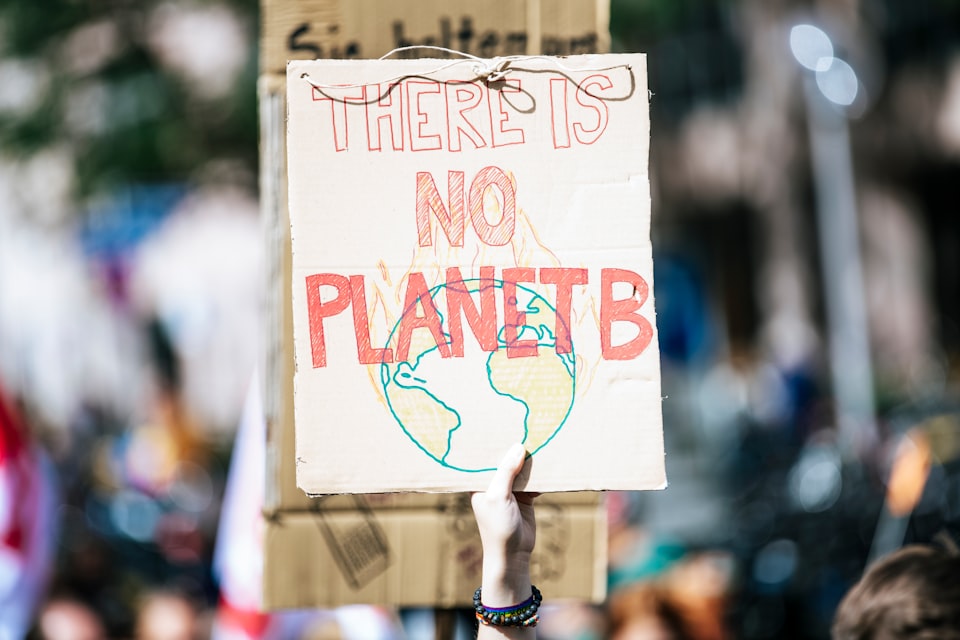A little bit of good news about the climate crisis - yes! Actually!

Hello loves,
HIDE YOUR VALUABLES because I'm over my Covidtine and back out in the world looking for mischief. It feels extremely good to not be in my flat any more, and to once again have functioning lungs.
Workwise, I'm 55k into the zero draft of a very ridiculous new novel, working on a guide for South Africans moving to the UK, and incubating some TV projects. Lifewise, living in London continues to be the greatest. I think I've finally figured out the Northern Line and experienced my first 1am kebab, which makes me practically a native.
Here are five things that have been bringing me joy.
An actually hopeful video about climate change
You might have missed it amongst all the horror coming out of Ukraine, but the latest IPCC report (the United Nations Intergovernmental Panel on Climate Change) was released recently. As you'd expect, it warns that the world is not yet doing nearly enough to limit global warming. But it also lays out clear actions that could still allow us to limit warming to 1.5-2°C if we force our governments to act decisively and quickly. Dr Simon Evans, the deputy editor of Carbon Brief, had a great summary of key points, and contributed to a much longer, but easy-to-understand Q&A if you want to understand more of the details.
🚨
— Simon Evans (@DrSimEvans) April 4, 2022
The @IPCC_CH report on how to tackle climate change is finally out, covering nearly 3,000 pages
Look out tomorrow for @CarbonBrief in-depth summary
Here are some highlights
1/ Global GHG emissions are at highest ever level, but growth has slowedhttps://t.co/lZ0CpDIhMQ pic.twitter.com/oQDs6avMGz
But engaging with stuff about climate change can be devastating, draining, debilitating. So many of the young people I speak to say they feel hopeless. Which is why the first thing I encourage you to do is to watch this superb 16-minute video from Kurzgesagt: "We WILL fix climate change!"
It might be the most important video I've seen about climate change in a long time. It was a great reminder to me that hope is not naive; it's necessary. And - believe it or not - there are reasons to be hopeful, from plummeting renewable energy prices to the decoupling of emissions growth and economic growth. Watch the video here.
The joy of open access
I've written before about how giving your best work away for free can be punk as hell and the cure for hopelessness. Making information freely available makes things possible that wouldn't be possible otherwise:
When something is free, it can go further. Free is a multiplier of impact. Wikipedia could not have been the greatest and most accurate encyclopedia the world has ever seen unless it was created by volunteers. Some estimates say that 80-90% of all software is made up of open-source code. Free work is the source of most art and music in the world (I mean, just go check out the 1.6-billion things anyone is free to "use and remix" on Creative Commons). Heck, the free work our parents did for us is the only reason any of us made it to adulthood. Free work holds societies together.
The best free work I've ever done has been for social impact publisher Book Dash, who gathers creative professionals who volunteer to create new, African storybooks that anyone can freely translate and distribute. Every few months, I get the most delightful emails from them telling me about all the adventures my books have been going on without me. One of our books, Lost Toy, illustrated by Amy Slatem, designed by Natalie Pierre-Eugene and edited by Glynis Lloyd, has been read on the Storyberries site alone 131,068 times, and distributed as 26,833 physical copies. I can't tell you how happy numbers like this make me. To put them in context, selling 5,000 copies of a book is enough to get you on the bestseller list in South Africa.
If you're looking for excellent, high-quality kids books in a variety of African languages with locally-relevant content, you can read over 100 of them here. Feel free to do whatever you like with them!
On the limits of forgiveness
I just loved, loved this interview by philosopher Lucy Allais about forgiveness, which she describes as an emotional change where you can release the anger you feel at someone, while you still believe that what they did was wrong.
"In order to grow, and even just to act, people need to be able to integrate a sense of themselves as having done something wrong with being okay, still lovable. This is scary and takes strength. Part of the gift of forgiveness, and what can be powerful about it, is that seeing another in this hopeful way — as having done something wrong, but still lovable, still okay — creates a space in which there is a possibility for them to face their flaws without needing defensive denial."
Lucy grew up in Apartheid South Africa, so she has some wise and nuanced thoughts about the limits of forgiveness, and how forgiveness does not release you from accountability. It's a wonderful, nuanced interview, and Lucy is very wise.
Basotho blankets
Just a total delight: Mojela oa Makoae had a fascinating thread on Twitter about the meanings behind different designs of Basotho blankets. I particularly love this one, called Majantja, because it features four sweet perfect doggos.

Blanket thread.
— Mojela oa Makoae (@_MojelaMasupha) April 2, 2022
I have been asked in the past to share my knowledge about various Basotho blanket designs and how they came about.
These two are the official Seanamarena Blankets.
1st frame depicts the fact that Lesotho is a monarchy. Seanamarena sa Korone (Crown) pic.twitter.com/cDGGwHlt2r
Wishing you hope for the world, and four dogs,
Sam






Member discussion